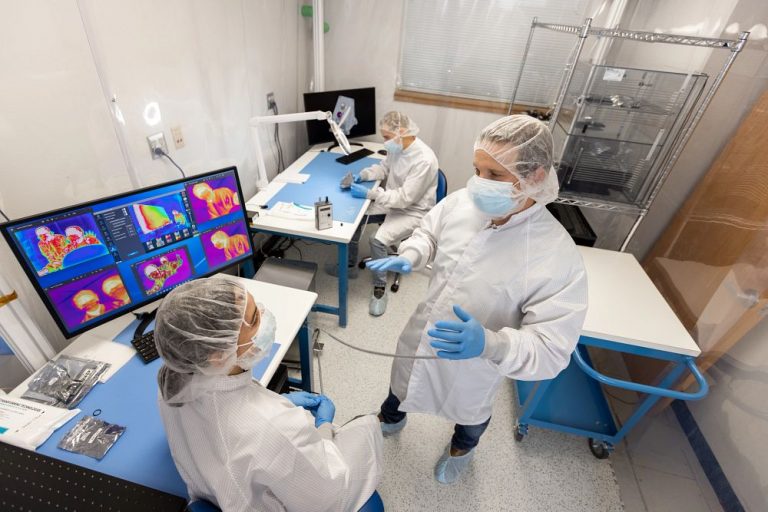Planetary scientists from Northern Arizona University are conducting tests on soil-moisture retention on volcanic dunes located near Sunset Crater, just 20 miles north of Flagstaff. The team hopes that the data they collect will help them understand how water is stored on Mars. NAU-TV captured the important work.
NAU Astronomy & Planetary Science In the News
Cristina Thomas is one of Astronomy Magazine’s Rising Stars
Rising star in astronomy: Cristina Thomas
Inspired by learning how spectroscopy could link meteorites to asteroids and reveal their compositions, her current work still focuses on asteroids.
Cristina Thomas’ interview about the DART mission with NPR’s “Short Wave” podcast.
DART: The Impacts Of Slamming A Spacecraft Into An Asteroid
“The DART mission, the Double Asteroid Redirection Test, is essentially our first test of a kinetic impact for planetary defense.” says Cristina Thomas, assistant professor of Astronomy and Planetary Science at Northern Arizona University.
NAUTV: Jupiter’s Icy Moon
Two Astronomy & Planetary Science graduate students, Patrick Tribbett and Becks Carmack, talk to NAU-TV about their research on the icy surface of one of Jupiter’s moons, which is part of NASA’s Europa Clipper Mission.
Cristina Thomas was in the New York Times, and it was *not* about the DART mission
‘Planet Killer’ Asteroid Spotted That Poses Distant Risk to Earth
Several [asteroids] no doubt sneak about near Mercury and Venus. But it’s “incredibly difficult to discover objects interior to Earth’s orbit with our current discovery telescopes,” Dr. Thomas said. During most hours of the day, the sun blinds Earth’s telescopes and objects can be hunted only in the few minutes around twilight.
Welcome to the space cam!

The students are on a multidisciplinary team led by associate professor Christopher Edwards, co-led by professor David Trilling, postdoctoral scholar Chris Haberle and associate professor Michael Shafer. They are building the cameras during classes with the goal of having fully flight-qualified instruments by March 2023.
Read the full article here!